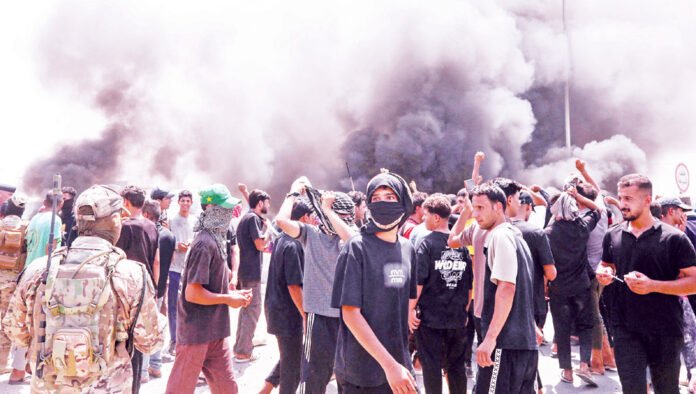Amid escalating climate pressures, water shortages spark protests once again in Iraq, where families are grappling with dry taps, scorched farms, and unbearable heat. Hundreds of residents in Babylon province staged demonstrations on Friday, demanding urgent action from the government to restore water access.
Meanwhile, in al-Majriyeh village near Hilla, over 300 people gathered in anger. They carried banners and raised their voices, frustrated by 35 days without water. Saadoun al-Shammari, a 66-year-old farmer, shouted, “Water hasn’t reached our homes for weeks. This is not the first time.”
Another protester, Kahtan Hussein, 35, added, “We aren’t asking for luxury. Clean water is a basic human right. The pipes are completely dry.”
Water shortages spark protests in southern areas as well. In Diwaniyah province, villagers also marched recently, fed up with years of neglect. They demanded action to address the worsening shortages that now affect both drinking water and crop irrigation.
Iraq, with a population of 46 million, faces devastating consequences from climate change. Summer temperatures keep rising. Rainfall keeps declining. Rivers that once fueled life across Mesopotamia are now shrinking fast.
The Ministry of Water Resources confirmed that this year ranks among the driest since 1933. The country holds only eight percent of its original water reserves. Officials blamed upstream dams in Turkey and Iran for reducing the Tigris and Euphrates flow. These rivers, vital for Iraq’s survival, have supported farming and drinking water for thousands of years.
Previously, in May, ministry spokesman Khaled Shamal warned that Iraq’s water reserves had dropped to their lowest in 80 years. He pointed to a failed rainy season and a lack of cooperation from neighboring countries.
Water shortages spark protests because the crisis is no longer seasonal. It is permanent and severe. Farmers are quitting agriculture. Authorities have slashed irrigation quotas to protect drinking supplies.
Looking ahead, as water levels fall and temperatures rise, meanwhile, more Iraqis are demanding fast solutions. Therefore, without immediate change, water insecurity will continue to push communities to protest. Eventually, they may abandon their land and fight for survival. In addition, prolonged inaction will likely deepen social unrest and economic decline across rural areas.


